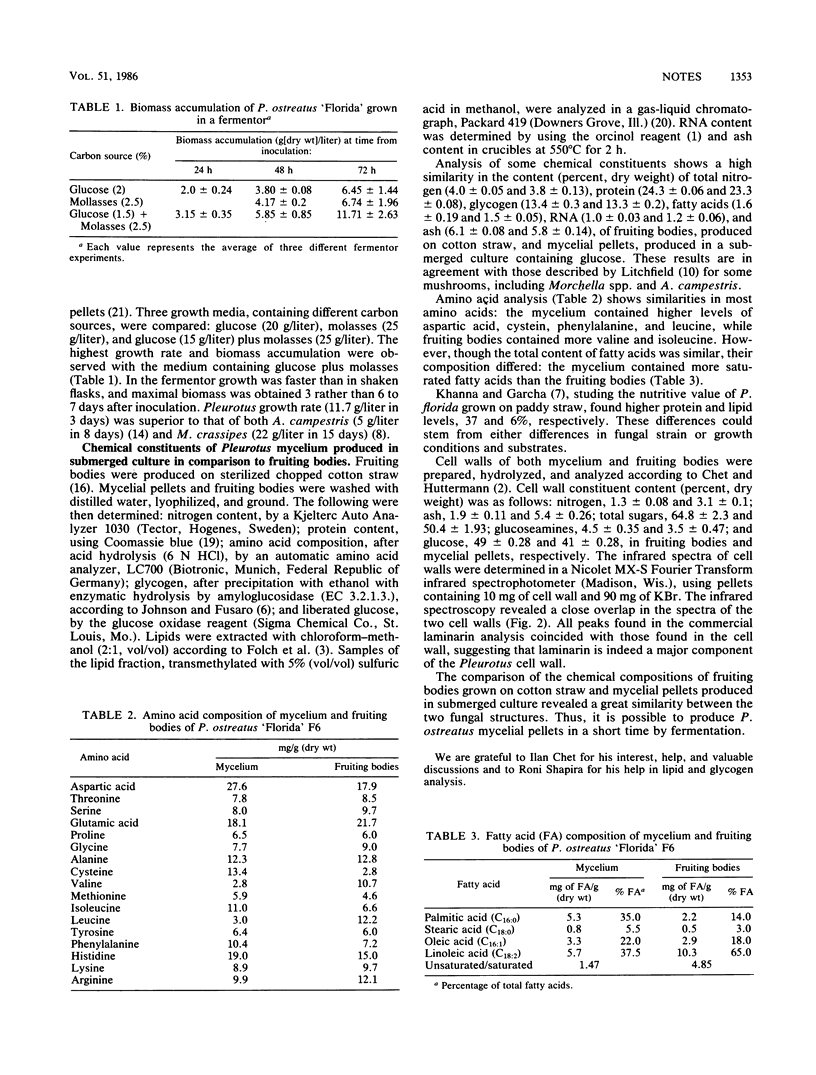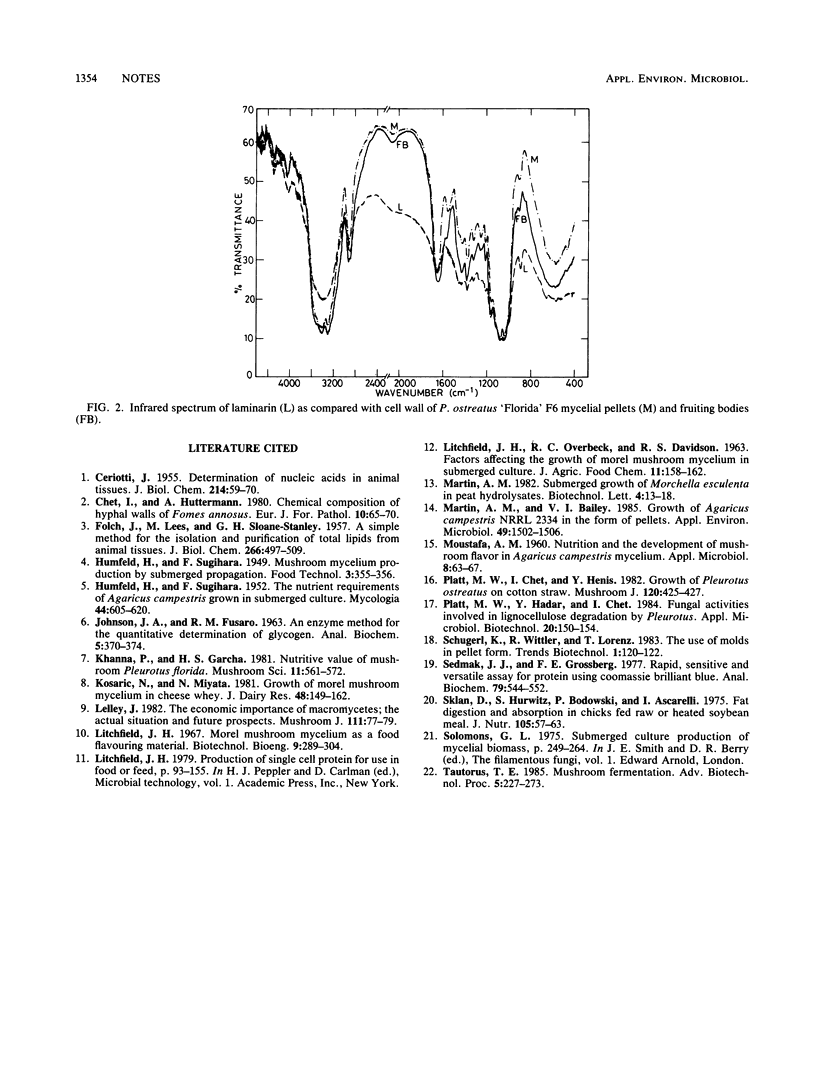Abstract
Pleurotus ostreatus `Florida' was grown in submerged liquid culture. The biomass yield of the fungus, grown for 3 days in 2-liter fermentors, where the mycelial pellets measuring 5 mm in diameter were formed, was 11.7 g (dry weight)/liter. Comparing the chemical constituents of fruiting bodies produced on cotton straw and mycelial pellets revealed several similarities in total nitrogen, protein, glycogen, fatty acids, RNA, and ash content. Differences were observed in the contents of six amino acids. Although the total fatty acid content was similar, there were more saturated fatty acids in the mycelium. Cell wall composition, typical for basidiomycetes, was observed in both mycelium and fruiting bodies, with laminarin as the main polymer.
Full text
PDF


Images in this article
Selected References
These references are in PubMed. This may not be the complete list of references from this article.
- CERIOTTI G. Determination of nucleic acids in animal tissues. J Biol Chem. 1955 May;214(1):59–70. [PubMed] [Google Scholar]
- FOLCH J., LEES M., SLOANE STANLEY G. H. A simple method for the isolation and purification of total lipides from animal tissues. J Biol Chem. 1957 May;226(1):497–509. [PubMed] [Google Scholar]
- MOUSTAFA A. M. Nutrition and the development of mushroom flavor in Agaricus campestris mycelium. Appl Microbiol. 1960 Jan;8:63–67. doi: 10.1128/am.8.1.63-67.1960. [DOI] [PMC free article] [PubMed] [Google Scholar]
- Martin A. M., Bailey V. I. Growth of Agaricus campestris NRRL 2334 in the Form of Pellets. Appl Environ Microbiol. 1985 Jun;49(6):1502–1506. doi: 10.1128/aem.49.6.1502-1506.1985. [DOI] [PMC free article] [PubMed] [Google Scholar]
- Sedmak J. J., Grossberg S. E. A rapid, sensitive, and versatile assay for protein using Coomassie brilliant blue G250. Anal Biochem. 1977 May 1;79(1-2):544–552. doi: 10.1016/0003-2697(77)90428-6. [DOI] [PubMed] [Google Scholar]



